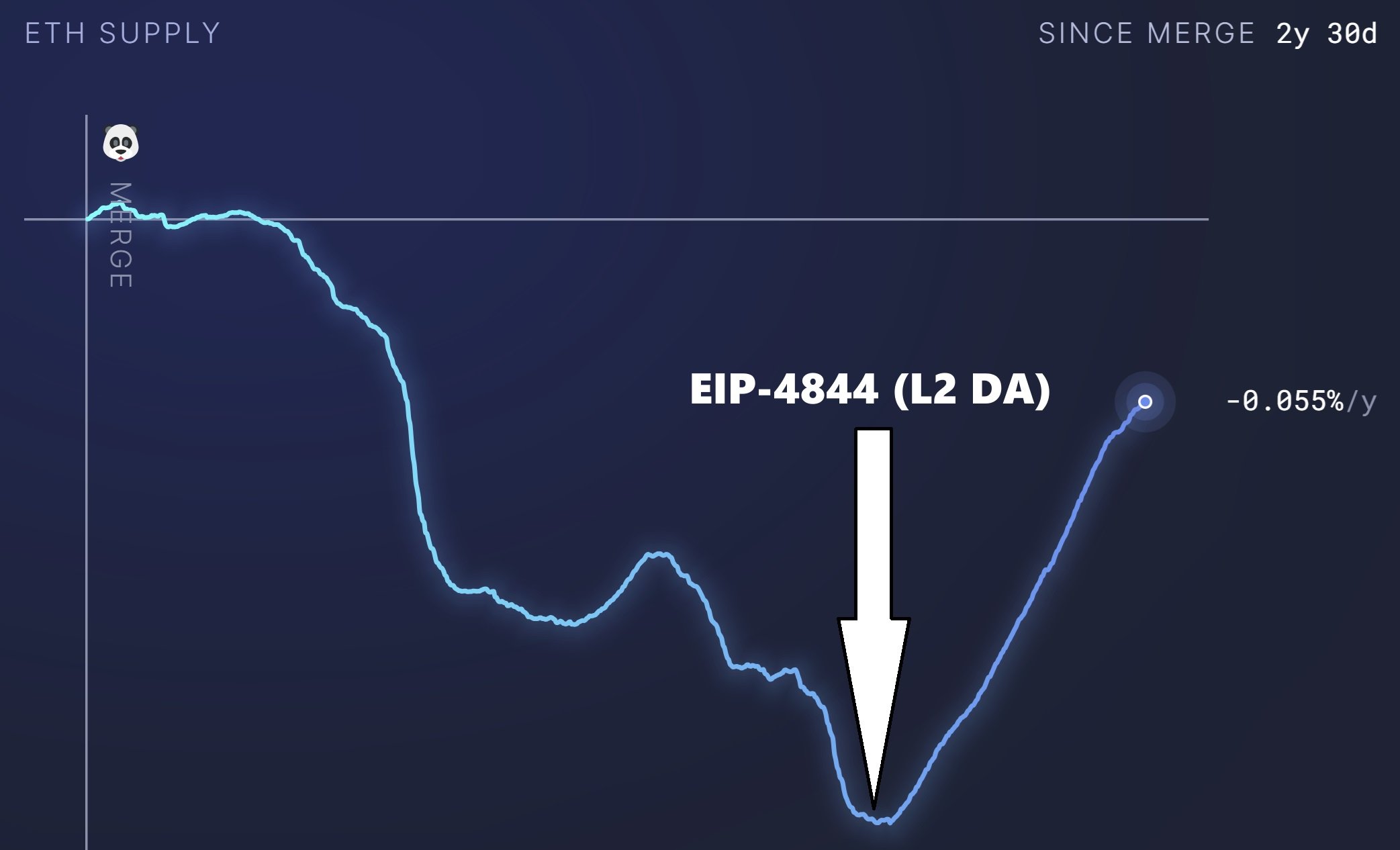Uniswap announced the launch of its Layer2 network "Unicahin" designed for DeFi on the 10th, which immediately sparked heated discussions in the community, discussing whether the issuance of Dapps with dedicated blockchains has become an inevitable trend, and what potential impact this will have on Ethereum and UNI.
Yesterday (15th), Justin Bons, the founder and CIO of the crypto fund Cyber Capital, also commented on this, bluntly stating that this move will put Ethereum in trouble, and suggested that UNI should move away from Ethereum as soon as possible, which quickly attracted widespread attention in the community.
Ethereum is in deep trouble
UNI moving off-chain is only the final nail in the coffin, all apps are moving to competing L1s & L2s instead
Collapsing ETH revenue, UNI was ETH's biggest fee-paying customer!
Now ETH is being left behind, irrelevant & broken; Ethereum is cooked 🧵… pic.twitter.com/AY55IShcoD
— Justin Bons (@Justin_Bons) October 14, 2024
ETH Will No Longer Be Deflationary
Justin Bons said that one of the reasons Ethereum is in trouble is that once Unichain is launched, the transaction fee revenue on Ethereum will decrease, leading to a decrease in the amount of ETH burned, which will make the "deflationary" narrative of Ethereum no longer exist.
Justin Bons cited data from Ultra Sound Money to point out that since the successful implementation of Proto-danksharding (EIP-4844) in April this year, the supply of Ether has been gradually increasing and the degree of deflation has been gradually narrowing. He said:
This indicates that as users leave L1, the final fees entering L1 are significantly reduced, leading to a drop in the burn rate. This should have been obvious from the start, as these use cases and corresponding revenues are now being captured by rent-seeking L2s!
This is why it is considered parasitic, as only a small portion of the fees return to L1, while the profit-driven companies retain the rest. At the same time, these stakeholders are also lobbying to maintain the block space constraints on the Ethereum L1...
Further Reading: Is UNI About to Take Off? Over $360 Million in Annual Fees May Go Directly to Uniswap Holders After Unichain Launch

Justin Bons fiercely criticized that Ethereum's high fees will stifle its usability and innovation, and suggested that UNI should move away from ETH as much as possible:
UNI's L2 will have its own validators, so they may very well become an independent L1 in the future, or ultimately deploy the UNI application natively on other chains.
The only reason to deploy on ETH is security, but in the long run, security depends on revenue. This is also why ETH is gradually heading towards a deadlock in its current development path, as all the vitality is being drained away by the second layer.
ETH Deviates from Its Original Purpose
Furthermore, Justin Bons believes that ETH has deviated from its original vision, he said:
ETH was originally expected to become a global computing platform, a unified state where all DeFi could interoperate. However, the reality is that ETH has evolved into a fragmented ecosystem dominated by centralized service providers...
He added that even worse, other blockchains like NEAR and EGLD have successfully implemented sharding technology, and fully parallel blockchains have effectively proven that they can meet huge demands without implementing sharding. He said that technological progress has reached a point where it can balance decentralization, security and scalability, making all the compromises in ETH's "L2 scaling" strategy completely unnecessary.
However, the core developers of ETH still insist that expanding L1 while maintaining decentralization is "impossible", which Justin Bons finds unacceptable.
ETH Is Losing Its Dominance
In the end, Justin Bons concluded that Ethereum is not only in trouble in terms of ideology and morality, but will also face economic decline. Although it still relies on past success to maintain itself, it is gradually losing its market position, especially in the face of technologically superior competitors. The success of UNI is no longer dependent on ETH. He said:
ETH has made itself irrelevant, and as it continues down this self-destructive path, its decline is inevitable. The future will belong to the countless alternatives that have already started operating!







